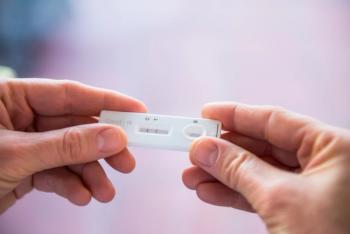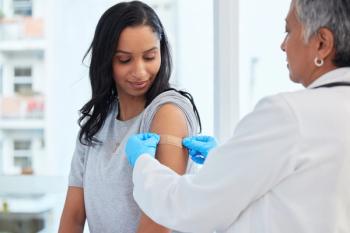
COVID vaccination during pregnancy does not increase risk of spontaneous abortion
A research letter in JAMA has concluded that the risk of spontaneous abortion is not increased by COVID-19 vaccine exposure in the 28 days prior to spontaneous abortion compared to women with ongoing pregnancies.
“This study is part of our work with the Vaccine Safety Datalink, a collaboration between the Centers for Disease Control and Prevention (CDC) and 9 health systems, which monitors the safety of COVID-19 vaccines in pregnancy,” said principal investigator Elyse O. Kharbanda, MD, MPH, a senior research investigator at HealthPartners Institute in Minneapolis, Minnesota.
Spontaneous abortion is an important outcome in studies of maternal vaccine safety because of concerns that risks of it may be a barrier to vaccination during pregnancy.
The study analyzed data from 8 health systems, located in Washington state, California, Colorado, Minnesota, Oregon, and Wisconsin, over 7 4-week surveillance periods between December 2020 and June 2021.
Ongoing pregnancies between 6 and 19 weeks’ gestation were recorded on the last day of each 4-week surveillance period (index date), whereas spontaneous abortions were assigned to a 4-week surveillance period based on their outcome date.
Among 105,446 unique pregnancies, 13,160 spontaneous abortions and 92,286 ongoing pregnancies occurred.
During pregnancy and before 20 weeks’ gestation, 7.8% of women received 1 or more BNT162b2 (Pfizer-BioNTech) vaccines; 6% received 1 or more mRNA1273 (Moderna) vaccines; and 0.5% received an Ad26.COV.2.S (Janssen) vaccine.
A COVID-19 vaccine was received within 28 days prior to an index date in 8% of ongoing pregnancies compared to 8.6% of spontaneous abortions.
Spontaneous abortions were not associated with increased odds of exposure to a COVID-19 vaccination in the prior 28 days versus ongoing pregnancies: adjusted odds ratio (aOR) = 1.02; 95% confidence interval (CI): 0.96 to 1.08.
“There is not a clear biologic mechanism for vaccines, including the mRNA COVID-19 vaccines, to increase risk for spontaneous abortion,” Kharbanda told Contemporary OB/GYNÒ. “Prior studies of inadvertent human papillomavirus (HPV) vaccination and flu vaccination have also demonstrated the safety of these vaccines when administered in first trimester.”
Furthermore, the current findings are consistent with data from other sources, including self-reports of spontaneous abortions following COVID-19 vaccine, as reported to the V-Safe registry, according to Kharbanda.
“Pregnant women and providers should feel reassured that in our study of over 100,000 pregnancies, the COVID-19 vaccines were not associated with increased risks for spontaneous abortion,” Kharbanda said. “The findings add to the evidence supporting the safety of these vaccines in pregnancy.”
Still, there are several notable limitations to the study, including that the gestational age of spontaneous abortions and ongoing pregnancies were not chart confirmed; also, pregnancy dating could be inaccurate early in pregnancy.
“Moreover, although vaccination status was identified using multiple data sources, the COVID-19 vaccine rollout has been complex and some vaccines may have been missed, potentially biasing findings to the null,” Kharbanda said.
Similarly, data on important confounders like prior pregnancy history were not available; likewise, it was not possible to assess risks specific to the Ad26.COV.2.S vaccine, due to the small number of exposures.
__
Disclosures
Kharbanda reports no relevant financial disclosures.
Reference
Kharbanda EO, Haapala J, DeSilva M, et al. Spontaneous abortion following COVID-19 vaccination during pregnancy. JAMA. Published online September 8, 2021. doi:10.1001/jama.2021.15494
Newsletter
Get the latest clinical updates, case studies, and expert commentary in obstetric and gynecologic care. Sign up now to stay informed.









